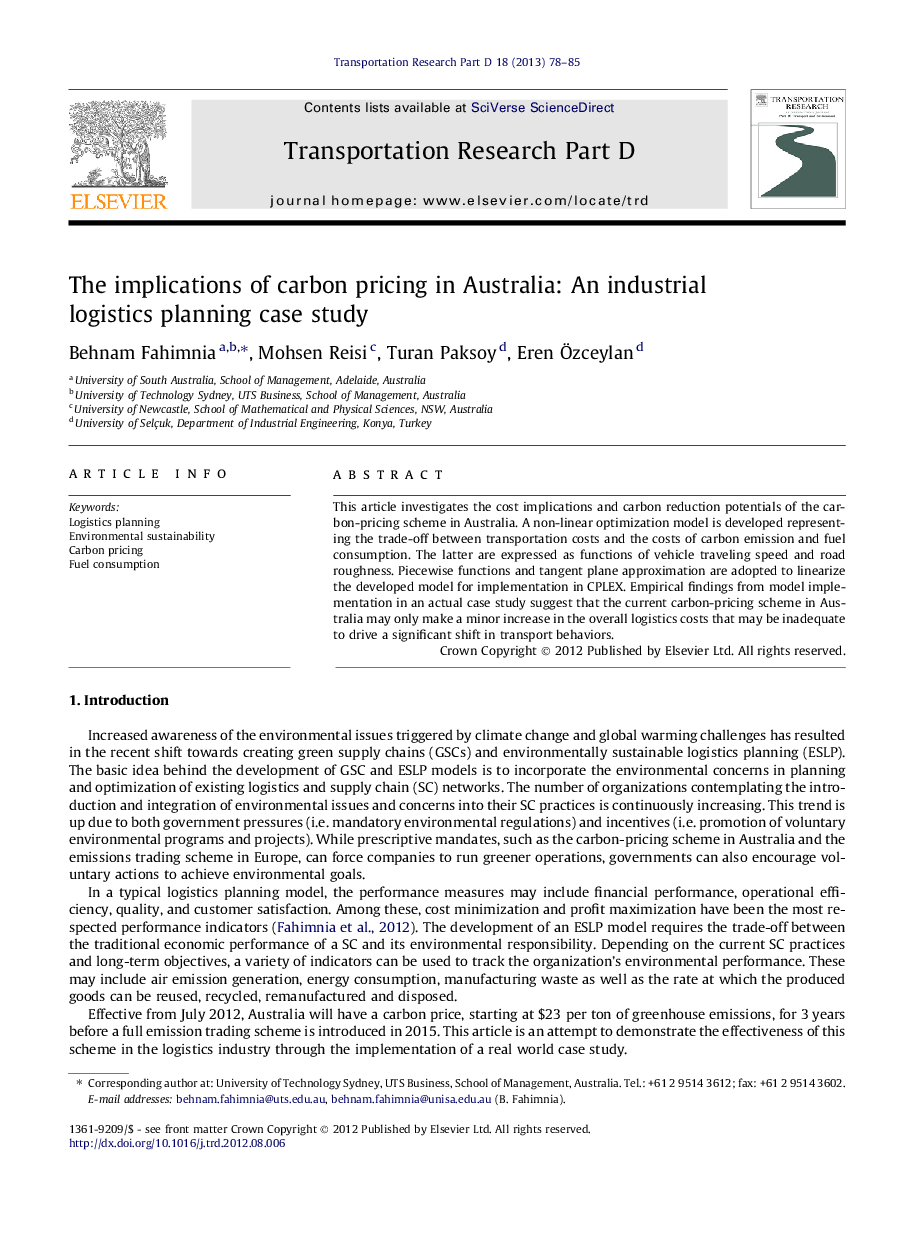| Article ID | Journal | Published Year | Pages | File Type |
|---|---|---|---|---|
| 1065895 | Transportation Research Part D: Transport and Environment | 2013 | 8 Pages |
This article investigates the cost implications and carbon reduction potentials of the carbon-pricing scheme in Australia. A non-linear optimization model is developed representing the trade-off between transportation costs and the costs of carbon emission and fuel consumption. The latter are expressed as functions of vehicle traveling speed and road roughness. Piecewise functions and tangent plane approximation are adopted to linearize the developed model for implementation in CPLEX. Empirical findings from model implementation in an actual case study suggest that the current carbon-pricing scheme in Australia may only make a minor increase in the overall logistics costs that may be inadequate to drive a significant shift in transport behaviors.
► A logistics planning model is developed integrating economic and environmental measures. ► Cost implications and carbon emission benefits of the carbon tax in Australia are examined. ► The carbon tax results in a minor increase of about 1.2% in overall logistics cost. ► The logistics cost increase is unlikely to make significant changes in industry behaviors. ► Improving the roughness of road surface can make up to 18.5% improvement on fuel consumptions.
